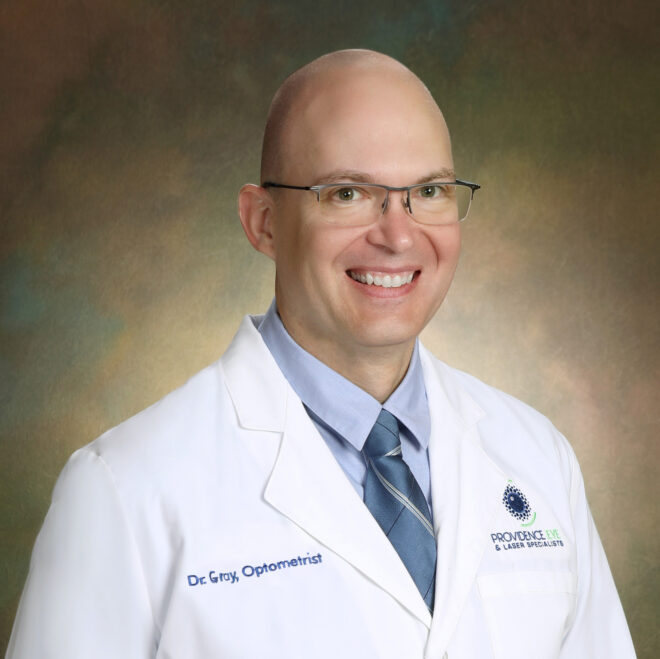
There are numerous vision myths out there about our eyes, what makes vision better and what can make vision worse. Dr Gray is here to address the top 10 myths about eyes and vision in two parts. Check out the first half of our countdown below.
10. Eating carrots will improve your vision… “What’s up, doc?”
While carrots contain high amounts of vitamin A, which is necessary for maintaining good eye health, including the cornea and retinal segments of the eye, loading up on carrots will not enhance your vision enough to allow you to get rid of your glasses. It is one of the biggest myths about eyes.
Vitamin A deficiencies most commonly cause night blindness, since it affects the photoreceptor layer of the retina. Fortunately, vitamin A deficiency is uncommon and rather rare in developed countries. The best nutrients to maintain eye health fall in the category of antioxidants. Eating green leafy vegetables, such as spinach, broccoli, kale and collard greens will provide you with the most antioxidant-rich benefits for the eye.
9. Sitting too close to the television will be harmful to your vision.
Don’t tell your children, but this is another one of the most common myths about eyes. Although this scenario may cause extra strain on the eyes, which can lead to headaches, it will actually not damage your eyesight (sorry moms and dads). If your child often sits too close to the television, it could be a sign they may need glasses to see more clearly, so a comprehensive eye exam may be necessary.
8. Reading in the dark will weaken your vision.
This scenario is similar to #2 above. Although it is harder to focus in the dark vs. a well-lit room, reading with poor lighting will not physically damage your eyes or cause you to need glasses. It is still recommended to have good lighting when trying to read, as it makes it much easier and more comfortable to enjoy whatever it is you are reading.
7. Cataracts are a disease of the eye, so not everyone will get them.
Cataracts are in fact an aging process of the eye. So, if you live long enough, you will indeed develop a cataract at some point. Vision myths surrounding cataracts being hereditary are not true, although sometimes developing early cataracts in your 40s or 50s can be.
Taking vitamins and eating healthily will not stop a cataract from forming, although it can slow its development along with wearing good UV-protecting sunglasses. You can have a cataract, but it may not be affecting your vision to a degree where surgery is necessary. So, if you think your 85-year-old grandmother doesn’t have a cataract since she hasn’t had cataract surgery, it is almost guaranteed she does have a cataract. It’s just not affecting her vision badly enough to need surgery.
6. Wearing reading glasses will make me more dependent on glasses as I age.
Not true – another popular myth about eyes! The reason we need reading glasses as we get into our 40s is due to the eye’s aging process. Most people think using reading glasses weakens the muscles of the eyes so they are less able to keep them strong over time, hence increasing the need for reading glasses.
However, the reason we lose the ability to see up close with age is mainly due to the hardening of our lenses. The harder they get, the harder it is to focus and flex our eye muscles. It is true that the older we get, the more dependent we are on reading glasses. But this is due to the “maturing” of the eyes rather than the actual use of reading glasses.
To learn more about vision myths and whether you or your children need an eye exam, contact our office today to schedule an appointment.
Check back in a few weeks to find out about the rest of our myths about eyes and vision countdown with part II of this series!